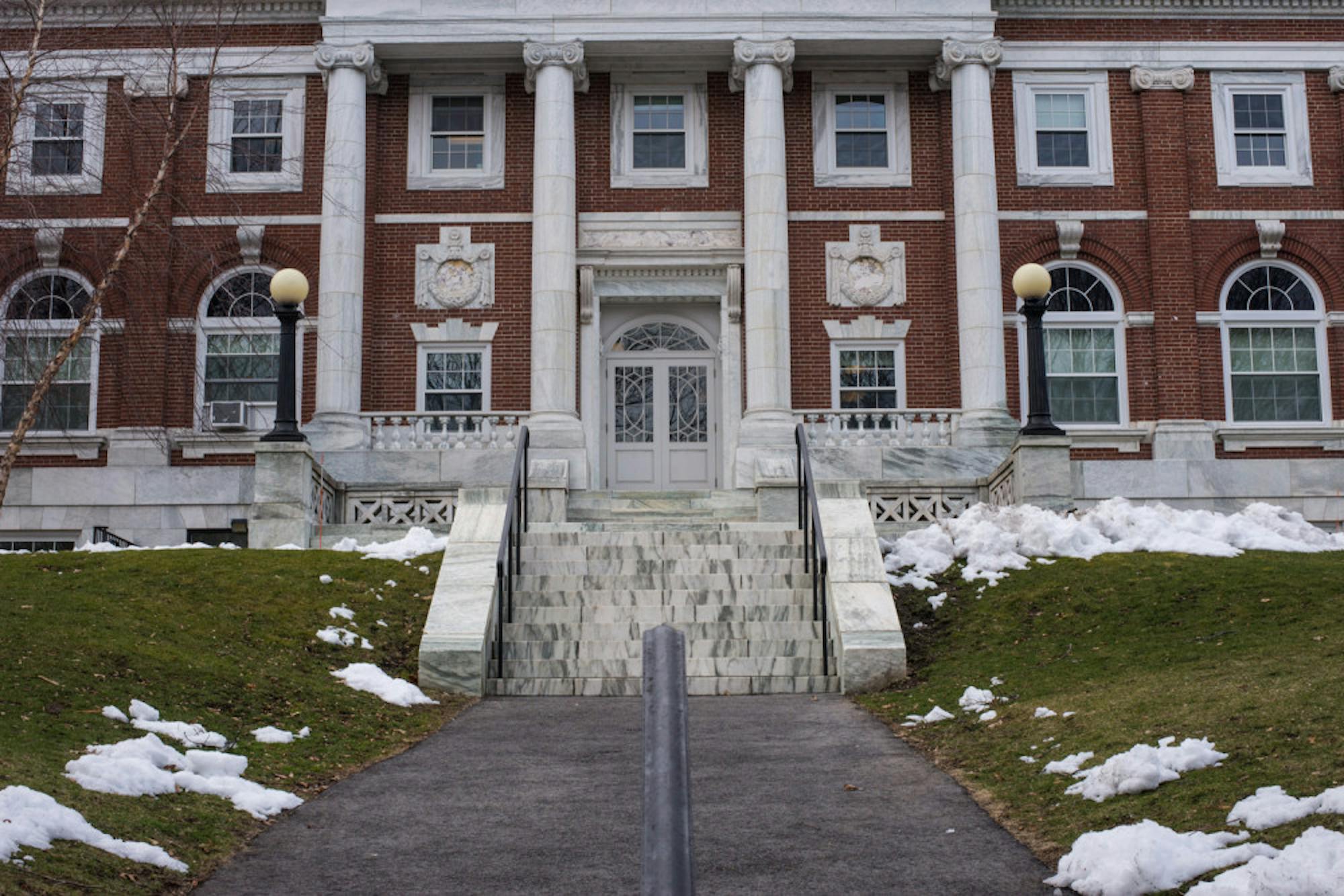Associate Professor Amahl Bishara presented a book talk on her new book, “Crossing a Line: Laws, Violence and Roadblocks to Palestinian Political Expression,” on Oct. 26 through the Center for the Humanities at Tufts. “Crossing a Line” focuses on the political practices of Palestinians living on both sides of the Green Line, the line that delineated the West Bank, East Jerusalem, the Gaza Strip and Golan Heights as outside the border of Israel based on an armistice reached at the conclusion of the 1948 Arab-Israeli War. Bishara is the chair of the anthropology department and an affiliate faculty member in the Department of Studies in Race, Colonialism and Diaspora.
Heather Curtis, the director of the Center for the Humanities at Tufts and the Warren S. Woodbridge Professor in the Department of Religion, introduced Bishara. She highlighted the depth and variety of Bishara’s work, ranging from prior publications, experience with ethnography in Palestine, her work with refugee politics and authoring of bilingual children’s books.
Bishara’s book has been in development since the fall of 2003, when she was beginning her Ph.D. research in the West Bank focusing on Palestinian journalists. Bishara said that when visiting family in the north of Galilee, she was struck by the distance in the relationship between Palestinians living in the West Bank and “Palestinian citizens of Israel.”
Bishara noted the differences between the political movements in both areas and wanted to examine both sides of the divide in a way that previous researchers had not.
“Palestinian political movements on two sides of the Green Line were converging more and more often and yet researchers tend to study either in Israel's 1948 territories or in the occupied territories,” Bishara said. “‘Crossing a Line’ is about these distinct environments for political expression and action of Palestinians who carry Israeli citizenship and Palestinians subject to Israeli military occupation in the West Bank. These are two Palestinian groups that are differently ostracized and endangered by Israeli settler colonialism and militarism, and differently impacted by displacement and empire.”
Bishara provided a brief timeline of Palestinian fragmentation. She chose to focus on Palestinians in the West Bank and in Israel due to their proximity to each other and her ability to access both communities given restrictions on movement.
“The system of closure inhibits political expression and certain forms of political engagement across the Green Line,” she said. “[This book is] comparative not of two groups that are held apart and distinct from each other, but two groups that are connected to each other by a shared history.”
In examining political practices, Bishara sought to understand how Palestinians in different circumstances can create collectivities.
“I conducted research with methods that I hoped would envision Palestinian collectivities that were not based on homogeneity and allegiance, but on a multiplicity of smaller connections — on what I thought about as emergent intimacies,” Bishara explained. “From impromptu performances to protest signs to our work in solidarity with prisoners, I kept my eye out for forms of intimacy, love and connection that were, if you will, kinder than nationalism.”
Chapters examine many different aspects of political expression. Bishara opened her book with an analysis of how the word “Palestine” has been used and its changed meaning in different contexts. Another chapter focuses on the protests against the 2014 Gaza War and various Palestinian responses, ranging from chanting poetry as resistance to engaging in violent confrontation.
While working on the book, Bishara organized a photography exchange between a community in Jaffa near Tel Aviv and Aida Refugee Camp in the West Bank to help understand how the two Palestinian groups experience place and can exist in relationship to the other.
She also examined prisons as a place where Palestinian citizens of Israel and Palestinians from the West Bank live together and are able to connect.
“There were a lot of other moments from prison where practices of coming together and living together were practices of kin making,” she said.
Bishara emphasized the importance of examining geographies.
“This approach moves us beyond state-centered definitions of politics and challenges methodological nationalism, and it also helps us to think in new ways about the generative kinds of politics that we can find through ethnography,” Bishara said. “They may be seeds for new kinds and more progressive kinds of liberation.”
Several audience members asked questions, ranging from how Bishara has seen religious expression as part of cultural and political expression to the ethics of grant making in ethnographic research.
Ultimately, Bishara aimed to highlight relationships she feels are often overlooked.
“Thinking about Palestinians and their relationship to each other deserves a book … not only, for example, thinking about the relationship between Israelis and Palestinians or Jewish Israelis and Palestinians,” Bishara said. “We also deserve this space and attention.”






